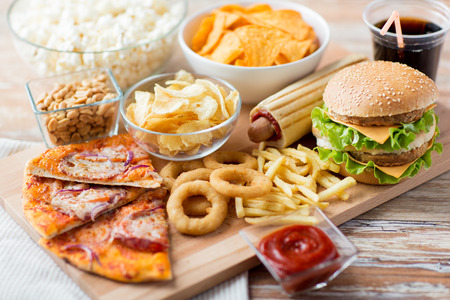You may wonder why fast food is bad for you. We’ve all heard that fast food is bad for us. But what is considered fast food and what does it do to our bodies?
Here’s How Fast Food Can Affect Your Body
If burgers, French fries and greasy breakfast sandwiches become centerpieces of your diet, they could take a serious toll on your health. Unhealthy diets increase your chances of developing depression, cancer, type 2 diabetes, heart disease and other chronic conditions.
What is considered fast food?
You know fast food when you see it: It’s highly processed, mass-produced food that’s prepared quickly — usually on a grill, in a fryer or in a microwave. Fast food restaurants follow very specific preparation methods to make sure you get the crispy, greasy fries you expect every time.
Why fast food is bad for you
Here’s why fast food is bad for you:
• Raise your blood pressure
According to Nancy Geib, RD, fast food items are packed with sodium, which acts as a preservative and enhances taste. Everything that’s processed, packaged or boxed is going to have sodium. It’s an inexpensive flavor enhancer.
High-sodium diets are known to increase blood pressure, which puts stress on your cardiovascular system. Over time, high blood pressure can stiffen or narrow your blood vessels, becoming a major risk factor for heart attack, stroke and heart failure.
Ideally, most adults should try to keep their salt intake under 1,500 milligrams per day, according to the American Heart Association — though its current recommendations allow for up to 2,300 milligrams daily.
Just one bacon cheeseburger alone can get you pretty close to the daily recommended 1,500 milligrams of sodium. So can a large piece of fried chicken breast with mashed potatoes and gravy. Even seemingly healthier options, like an Italian-style sub sandwich, can contribute more than 1,000 milligrams to your daily intake.
• Leave you bloated
Eating meals that are high in sodium, high in fat or heavy with refined carbohydrates (such as bread, buns or breading) can all leave you feeling bloated. And, if you add a soda to your meal, the carbonation could make it worse.
• Drive up your cholesterol
Food that’s fried in oil is high in saturated fat. Eating too much saturated fat can drive up your LDL, or “bad,” cholesterol, which puts you at risk for heart disease. The American Heart Association recommends that no more than 6% of your daily calories come from saturated fat. If you eat 2,000 calories a day, that’s about 13 grams, or the amount that’s in one bacon, egg and cheese breakfast sandwich.
• Contribute to digestive problems
Bagels, muffins and anything breaded might be delicious, but they’re all processed carbohydrates that lack fiber. Eating adequate amounts of fiber (25 to 35 grams a day) helps keep things moving in your digestive tract. It lowers your risk for diverticulitis and other conditions associated with straining or constipation, such as hemorrhoids and hernias.
• Lead to weight gain
If you go to the drive-thru and grab a value meal for dinner, chances are you’ll end up eating a bigger portion (and higher-calorie foods) than you would if you were cooking at home. If that becomes a regular thing, all those extra calories can add up to extra pounds. And when those calories are mostly from highly process carbohydrates, you might end up feeling hungry again within a few hours, which can lead to — you guessed it — even more extra calories.
• Drain your energy
A quick hit of refined carbohydrates and sugar causes a spike in your blood sugar, which prompts your body to produce a surge of insulin to quickly bring it down. This spike-and-crash cycle can leave you feeling tired and cranky.
• Affect your mood
When you eat a diet that’s high in saturated fat, sodium, sugar and refined carbs, you’re not only getting too much of those things, but you’re also missing out on a lot of other important nutrients. Fruits and vegetables are rich with vitamins, minerals and antioxidants that nourish your body and improve your mood. Eating a lot of processed foods may even increase your risk for depression.
Making healthier fast food choices
It is possible to eat fast food without sabotaging your healthy diet, but it requires a little diligence and investigating. Look for meals with lean proteins, veggies and fiber, and avoid anything supersized.
Click here to read more about why fast food bad is for you.






